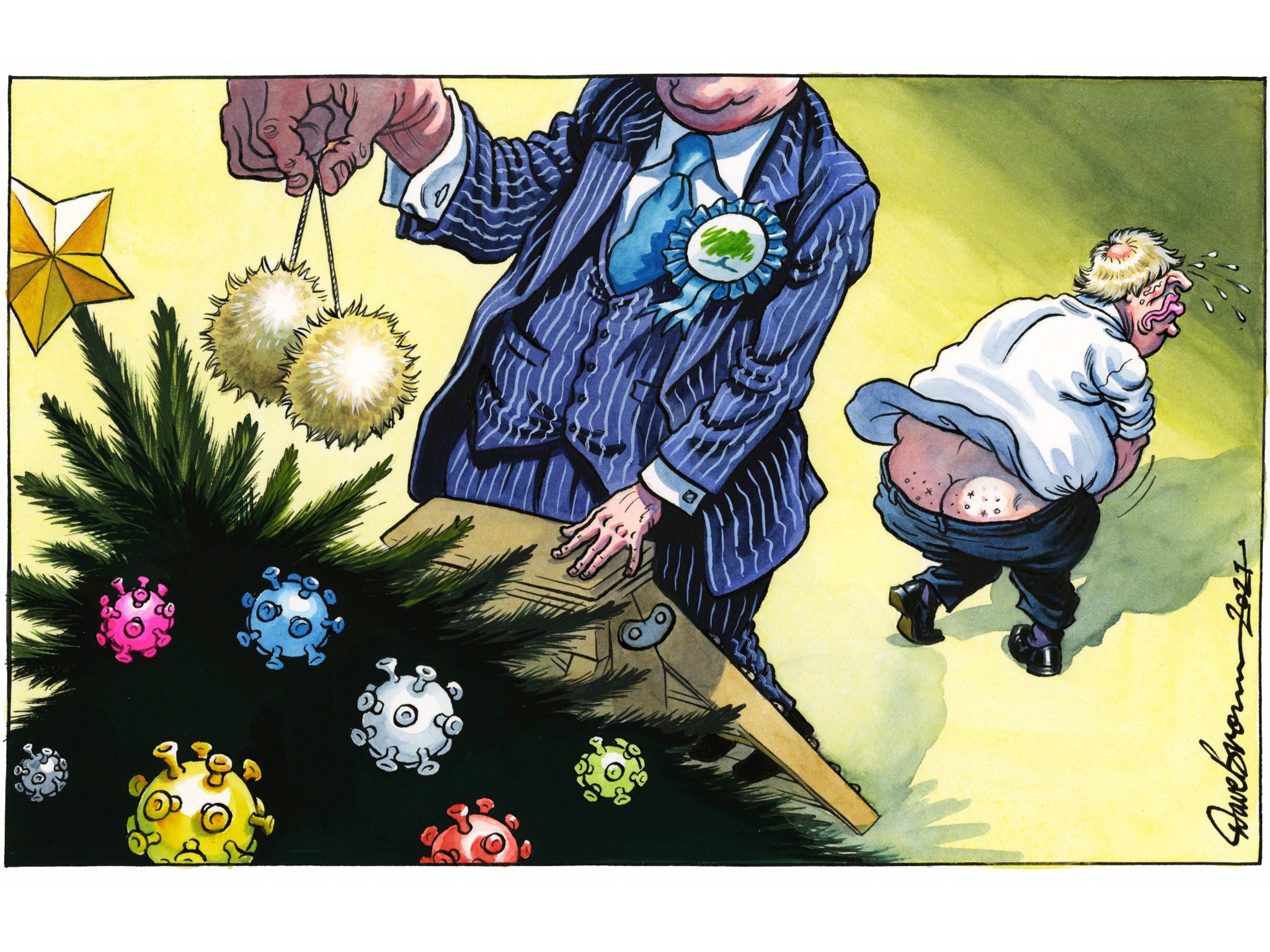All the things we do know [about omicron] are bad.” It is a great pity, to put it mildly, that the chief medical officer, Chris Whitty, wasn’t able to issue his advice and explain, in his usual calm and measured fashion, the risks and dangers that humanity faces from the omicron variant and the rationale for plan B.
His critics call it “scaremongering”, or deride him as “doctor doom”, but what use is a medical adviser who tells you all will be well when he knows that may not be the case, and thousands will die needlessly? It is his duty to tell the truth as he sees it. He, above all, understands that success in public health is nothing without public support, and he also knows that public support can only hold if it is underpinned by a sober understanding of the science – and by the example set by “those in high places”, as he diplomatically puts it.
In particular, Professor Whitty nailed the delusion that omicron is now known to be “mild” on the basis of South African experience. Theirs has not been the same as Britain’s, though, in terms of building immunity and the stage we are at in the pandemic, and theirs is a younger nation. The complacent assumption has grown up that omicron is more infectious than the delta variant but less harmful; but that may not turn out to be true. Even if it were, the speed of the spread of the disease will still mean very high infection rates and correspondingly high demands on the health service. Indeed, we are now entering into a twin pandemic, one on top of the other: the continuing delta variant still taking a steady toll, while the omicron variant starts to escalate exponentially.
A huge number of cases, even with a much lower rate of very severe symptoms that require hospitalisation, can still overwhelm a health system. The signs are that it might well happen by new year. The Nightingale hospitals could and should be reactivated now to deal with the peaks that Professor Whitty says could arrive after Christmas. But the real constraint is in numbers of staff and, possibly, ventilators and availability of the new treatments developed over the past year or so. The fact that testing kits have run out and booking a vaccination on the website is nigh on impossible doesn’t augur well for the “national mission”.
All this should have been explained to the public and to MPs at least a week ago, with questions from the public and the media. Instead, we had a prime ministerial broadcast that terrified without adding much to the sum total of public knowledge.
The fact that no one believes a word the prime minister says doesn’t exactly help either.
What also became apparent during the prime minister’s (overdue) press conference is that the government is repeating the very first errors from the beginnings of the pandemic in March 2020. Then, for about a week before the lockdown was announced, the prime minister vaguely discouraged people from going to the pub and other venues without actually telling them not to, and without any financial support until the full lockdown was announced and the furlough scheme was unveiled. Today, the hospitality sector is being smashed in the same way, presumably because the government doesn’t want to spend and borrow the money. Yet the inevitable tightening of social life – plan C – cannot be long delayed.
The strong impression is that the experts would very much like us to “de-prioritise” much more of our Christmas plans: less mixing, increasing social distancing and extending the restrictions that are now in place. So they should be, and with adequate financial support to hard-hit sectors, job-saving subsidies, and a boost to sick pay so no one is penalised again for doing the right thing and self-isolating. The epidemiological case for a lockdown must be growing.
To keep up to speed with all the latest opinions and comment sign up to our free weekly Voices newsletter by clicking here
By contrast, the prime minister, not for the first time, seems to be dragging his feet and hoping for the best – yet he knows the worst of the pandemic may yet be to come. He should have maintained many minor safeguards, such as face coverings, through the autumn, to push delta incidence lower and create capacity for the NHS to deal with the backlog. He should have triggered plan B even before omicron because the NHS was facing undue stress, particularly in the ambulance service and GP surgeries. He should have picked up the pace with booster jabs sooner. England should by now be introducing the kind of clearer household mixing regulations there are in Scotland.
The reason for these latest failures seems clear. Temperamentally, and contrary to his critics’ accusations, Mr Johnson doesn’t actually enjoy shutting pubs down. He is also understandably concerned about the consequences for the public finances, and the ambitious projects he hoped to fulfil during his time in office. Less forgivably, he has lost the authority to take tough decisions through his own foolishness and arrogance – sleaze, partygate and the rest.
Circumstances, tragically, may soon force his hand again. Christmas is in danger.




Join our commenting forum
Join thought-provoking conversations, follow other Independent readers and see their replies
Comments